“We got one in the net, had a few follows- decent day,” .....
Frozen Toes and Big Bows - Winter Fly Fishing For Trout
Cold air fills my lungs as I step out of the truck.
The mountains couldn’t be quieter; the only sound is the faint bubbles of the river some distance off.
There are no tracks in the lot and it doesn’t seem like anyone has been here in sometime.
Days like this, there is no rush to get on the water. I slowly finish my coffee as I watch my dog play in the snow.
Time to get geared up as I’m starting to feel the cold crawling up my body, then I grab my rods and head down to the water. As I walk I look around and truly start to feel alive; this is exactly where I should be and I start to feel the ease of the worlds stress slipping away.
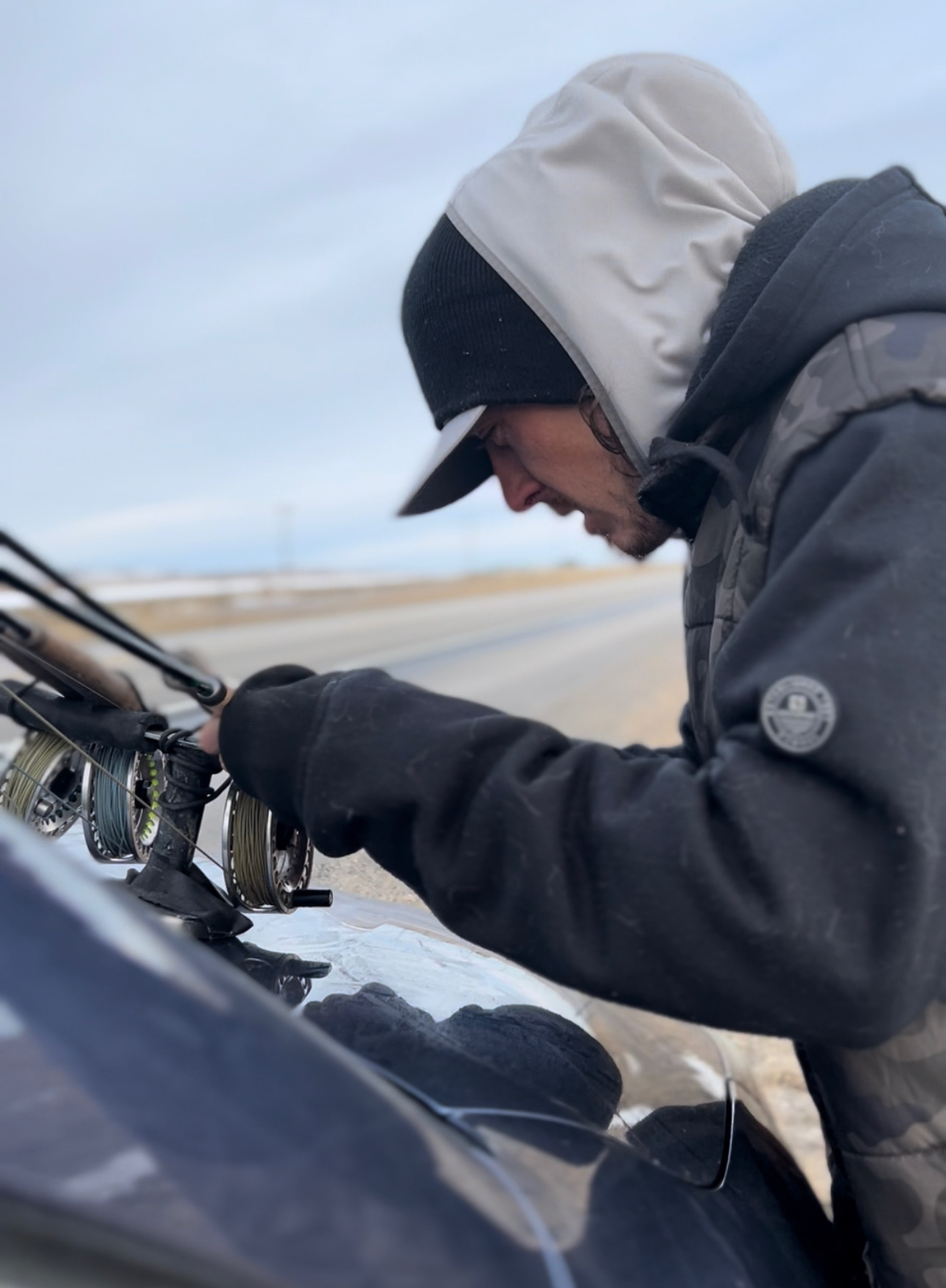 photo by TFO Ambassador Trent Jones
photo by TFO Ambassador Trent Jones
Generally, when I’m fishing in the winter, I’ll bring two rods. I know I’ll most likely be fishing in certain holes all day, so having an extra rod shouldn’t be an inconvenience. In the winter I’ve found that trout look for slow and deep water to save energy as their food sources are low during this time of year.
Generally, nymphing is the best tactic, but I do carry my streamer rod so I can swing out the holes once I’m done with the bugs. I’ve spent hours working a hole with nymphs only to have the biggest fish of the day wack a streamer right as I was leaving. Either way, sub-surface fishing should definitely be the tactic in the winter as the trout rarely come up for dries, unless conditions are just right.
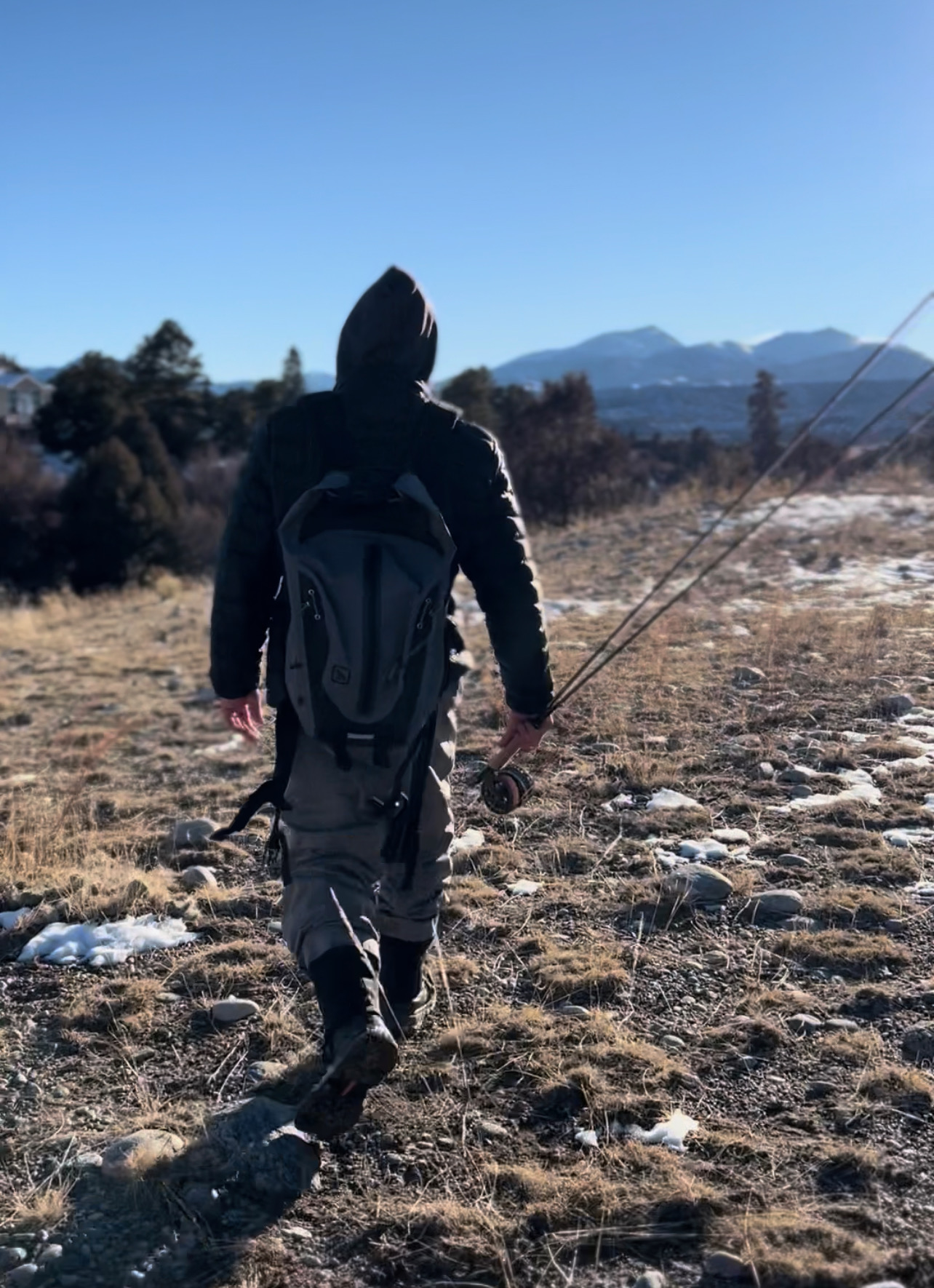
photo by TFO Ambassador Trent Jones
Finding Trout
Where To Look
In those cold days of winter, trout are feeling lazy and the water temps have there, metabolisms slowed and they aren’t in the mood to be racing around. With that in mind I always look for trout in the winter to be holding in the back of the runs or in pools where it is deep and slow. Finding the right hole will make or break your day, as it seems to me that fish group up in the winter.
Depth
Once I have found a spot that meets all my needs, I’ll spend a good amount of time working the entire area. Trout will not be moving far to eat this time of year, so covering water will be the key to getting hook ups in the winter. Depth is probably the most important thing as fish will not move much to feed. Getting the bugs in their zone is the only way to get eats. I almost always change depth on my nymphs, as finding the perfect depth matters most in the winter. Setting up nymphing rigs that can change depth quickly and easily will make all the difference. Next, the choice becomes streamers or nymphs.
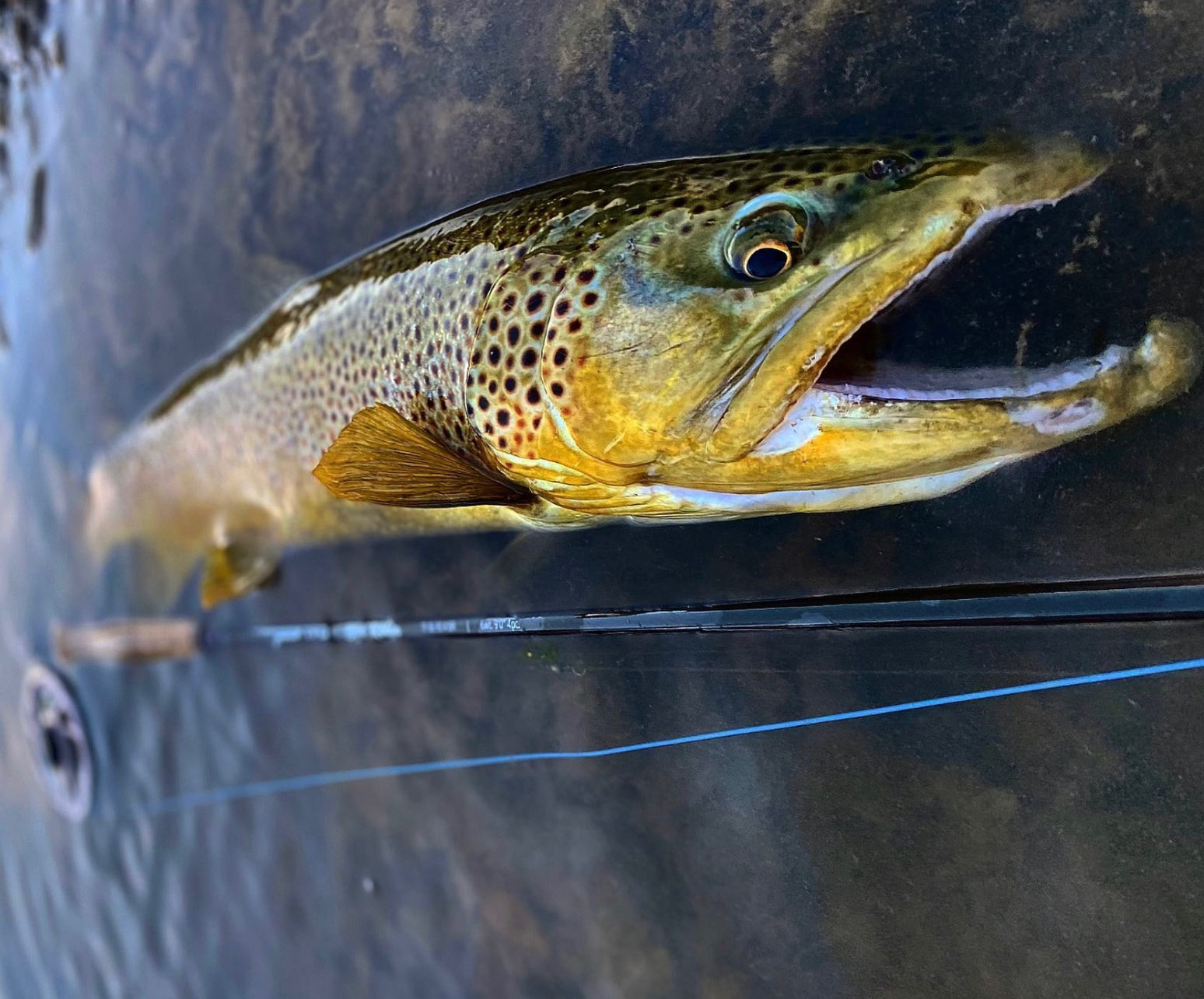
photo by TFO Ambassador Trent Jones
Streamers or Nymphs
Nymphing
In winter fly fishing, I generally start my day out nymphing. This method of fly fishing is usually the most effective tactic in the colder months of the year as water temps are low and the trout’s metabolism has slowed down as well.
Trout in the winter are mostly found in slow and deep water where very little energy is needed to survive. The back ends of pools and runs are always a good starting point when looking for fish.
Depth is the most crucial part of putting fish in the net. Trout will only move small distances to eat in the winter, so getting the fly in the zone is of the upmost importance. Bites will be very subtle, so any small movement on the indicator should not be ignored. Strikes will most likely not be plentiful, so make sure to take advantage of every opportunity you are given.
As far as fly section, a good attractor pattern aka stoneflies, eggs, worms, and any large food source the trout have in the summer months followed by a midge or midge emerger should most definitely do the trick. I try not to get caught up so much in the bugs and instead continually work on my depth. Once you find the right depth for the hole, you normally find all the fish.
For a nymphing rod, I like running the Blue Ribbon series 10’ 5’’ six weight (TF 05 10 4 BR) in the winter. Sometimes nymphing rigs can get heavy, so having the five weight is nice for punching those flies over and the extra twelve inches goes along way when high sticking and mending.
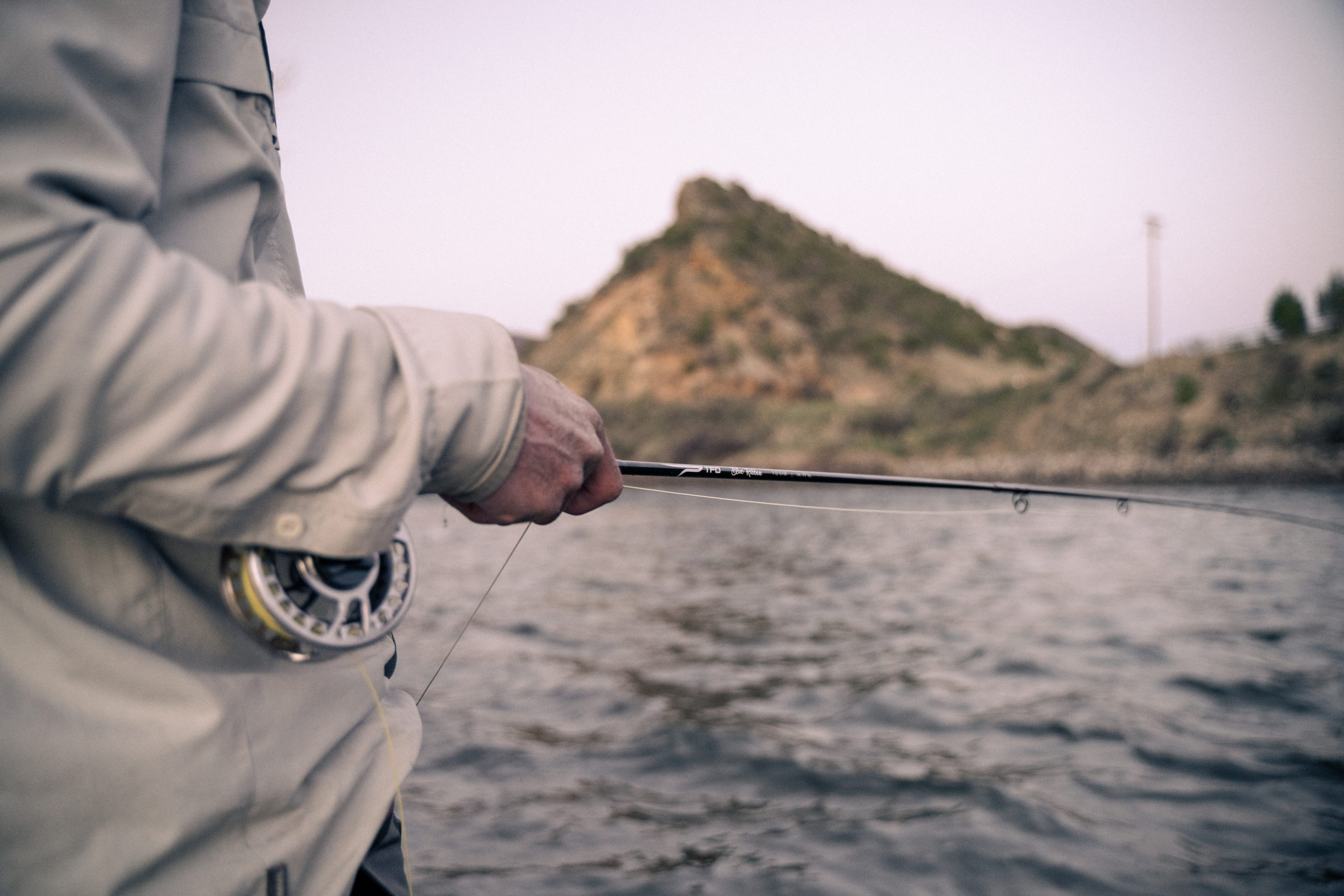
photo by TFO Ambassador Trent Jones
Streamers
As far as winter streamers go, I like to think steelhead tactics. You’ll be looking for trout in the same spots as when you were nymphing. Long casts across the water with big mends and slow retrieves is the ticket. Bites will again most likely be very subtle, so make sure you keep your rod tip down, and strip set on everything.
For streamer selection, I generally either go big and white and try to imitate a wounded fish, or I go small and black and really try to get it low and represent a leech.
Always make sure to clear the pool at the end with the streamer. This is a very smart move and has definitely resulted in some amazing fish for me over the years. Just remember, slow and deep.
I like the LK Legacy in a 9′ seven weight (TF 07 90 4 LK) for my streamer rod as it makes casting easier and my arm can last through out the day. Add a sink tip line and start swinging.
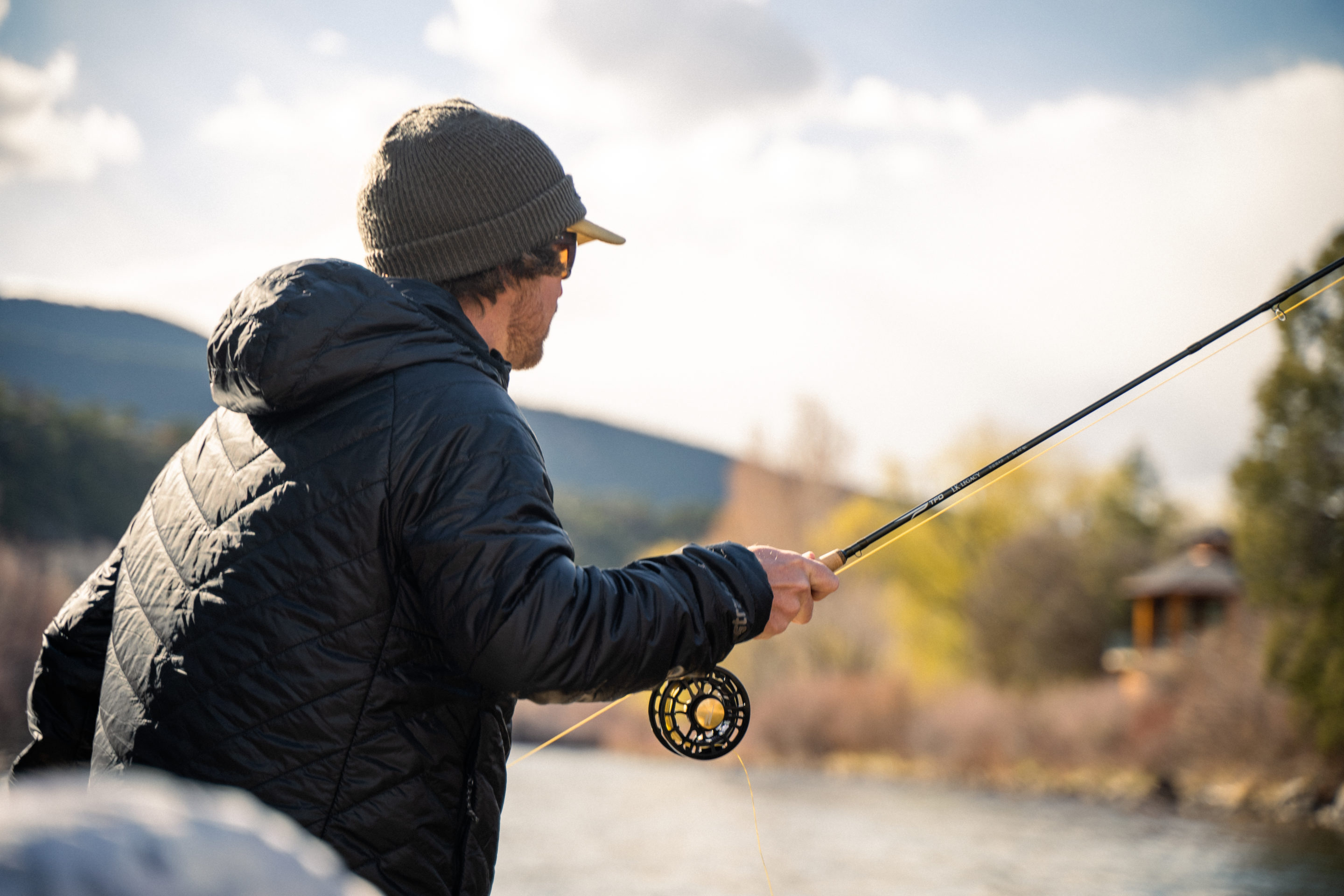
photo by TFO Ambassador Trent Jones
Heaven on Earth
Once you can accept that winter conditions are tough, you might not catch a lot of fish, and you might freeze your butt off – winter fly fishing can be the most peaceful thing on earth. Its amazingly quiet and the views are definitely one of a kind.
For me, it is becoming my favorite time of year to be on my local rivers. With increasing pressure in the summer months from new anglers, it is extremely satisfying to have the river to myself. Like my own little heaven on earth.
If you’d like to get out and enjoy the winter wades shoot us a message at jonesflyfishing1@gmail.com and we can help you to enjoy some winter fly fishing.
Blog and photos by TFO Ambassador Trent Jones. You can follow him on Instagram here, and find out more about his guiding service here.
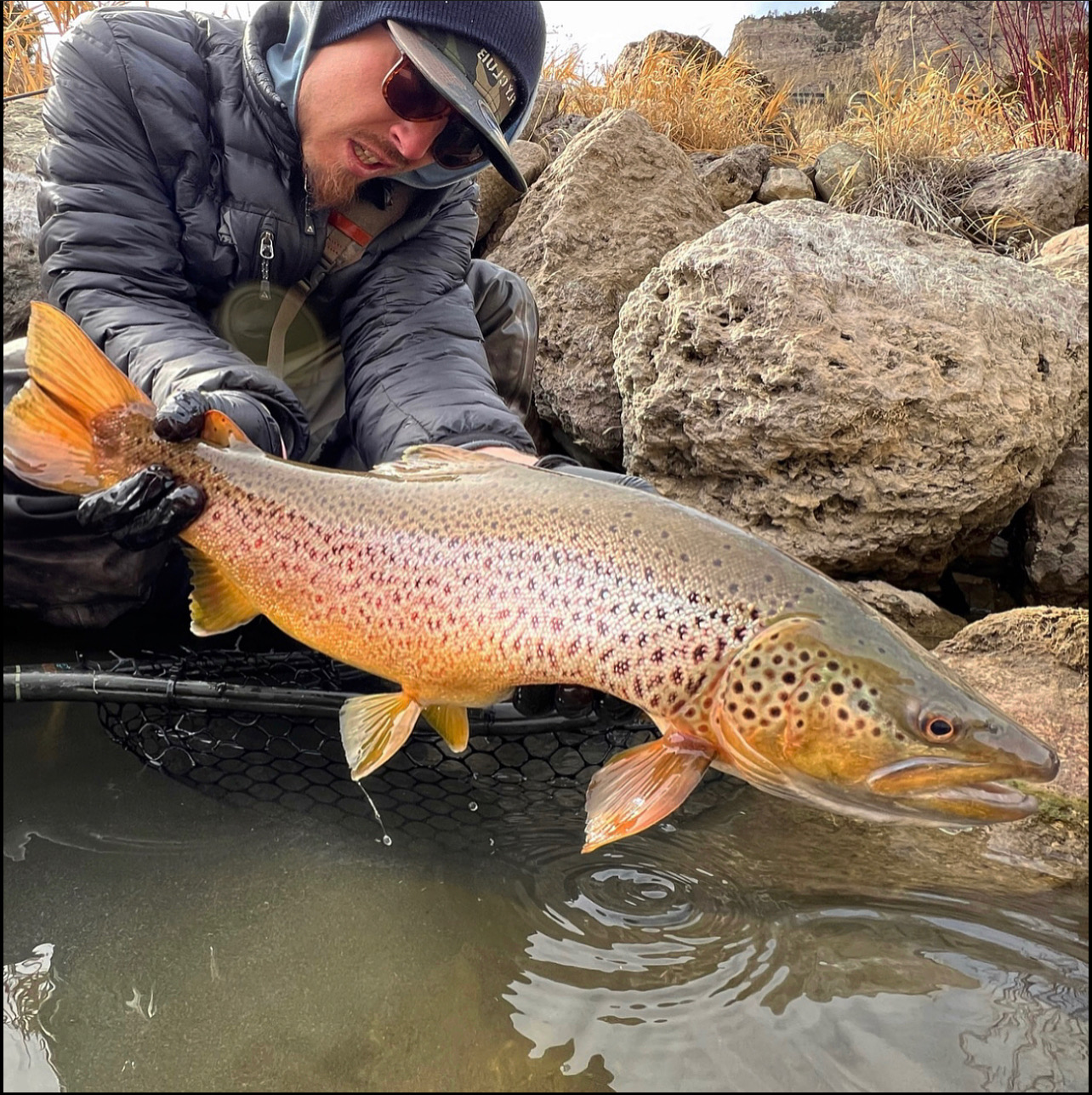
Blog and photos by TFO Ambassador Trent Jones
![]()






